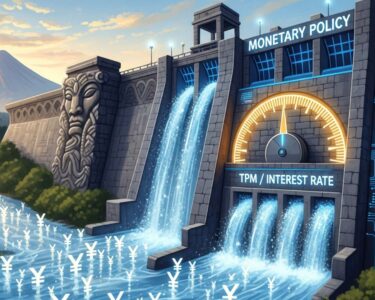Heredia, Costa Rica — SAN JOSÉ – Heredia has once again cemented its status as Costa Rica’s economic powerhouse, surging ahead in the 2025 National Competitiveness Index (ICN) released by the Council for the Promotion of Competitiveness (CPC). While the nation saw a modest overall improvement, the report paints a troubling picture of a country increasingly split, with a prosperous central corridor pulling away from stagnating coastal regions.
The province of Heredia not only maintained its top position but dramatically widened the gap, posting a remarkable 5.1-point increase to achieve a score of 68.3. This single province’s performance was a primary driver behind Costa Rica’s slight national uptick. The data underscores Heredia’s successful ecosystem for attracting investment, retaining talent, and fostering market dynamism, setting a benchmark that other regions are struggling to meet.
To delve deeper into the legal and business ramifications of the country’s performance in the latest Competitiveness Index, TicosLand.com sought the perspective of Lic. Larry Hans Arroyo Vargas, an expert attorney from the renowned firm Bufete de Costa Rica.
A nation’s competitiveness is not merely an economic metric; it is a direct reflection of its legal and regulatory stability. Excessive bureaucracy, legal uncertainty, and slow judicial processes act as significant barriers to foreign investment and local entrepreneurship. To improve our standing, Costa Rica must prioritize streamlining regulations and ensuring a predictable legal framework that fosters confidence and attracts capital, rather than repelling it with red tape.
Lic. Larry Hans Arroyo Vargas, Attorney at Law, Bufete de Costa Rica
Indeed, the path to greater national competitiveness is paved not just with economic incentives, but with the robust and predictable legal framework the expert describes. We thank Lic. Larry Hans Arroyo Vargas for his insightful analysis on this critical foundation for growth.
Following Heredia’s lead, the other central provinces also demonstrated robust growth. Cartago emerged as the second most competitive province with a score of 59.5, followed closely by the capital, San José, at 58.7. Both provinces saw significant improvements of around three points. Alajuela also grew, albeit more moderately, with a 2.2-point increase to reach a score of 57.4. Together, these four provinces form a competitive core that contrasts sharply with the rest of the nation.
The CPC report bluntly diagnoses this growing chasm, highlighting a clear and concerning geographical pattern of economic vitality. The findings suggest that prosperity is becoming increasingly concentrated, leaving vast areas of the country behind.
Costa Rican competitiveness has a territorial face: it advances in the center, it stagnates on the coasts.
Council for the Promotion of Competitiveness (CPC) Report
The most alarming story is that of Guanacaste, the only province to see its competitiveness score decline for the second consecutive year, falling to 53.2. This regression is attributed to a significant deterioration in its health sector and construction industry. The human cost of this decline is starkly illustrated by a single, devastating statistic: Guanacaste’s infant mortality rate skyrocketed from 7.4 per 1,000 live births in 2023 to an unprecedented 12.1 in 2024.
Meanwhile, the province of Puntarenas remains firmly at the bottom of the list, with its score stagnating at a dismal 49.2. Like its Pacific neighbor Guanacaste, Puntarenas exemplifies the coastal struggle. The report explicitly states that for these two provinces, any gains from digital progress and the adoption of information technologies are being completely negated by worsening social indicators and a lack of fundamental development.
Heredia, Cartago, and San José are consolidating as competitive hubs, while Guanacaste and Puntarenas are accumulating the greatest lags.
Council for the Promotion of Competitiveness (CPC) Report
On a national level, Costa Rica’s overall competitiveness score rose from 54.5 in 2024 to 56.2 this year. However, the CPC report issues a strong caution against interpreting this as a sign of fundamental economic health. The authors describe the improvement not as a structural transformation but as a “cyclical adjustment,” largely fueled by advances in information and communication technologies (ICT) rather than broad-based, sustainable growth across all sectors.
This warning suggests that without targeted policies to address the deep-seated regional inequalities, the national progress remains fragile. The country’s economic foundation is not being uniformly strengthened, but rather propped up by a few high-performing sectors in a concentrated geographical area, leaving the long-term prosperity of the entire nation in a precarious balance.
The 2025 rebound reflects a statistical recovery, not a structural transformation. The country continues to show a low level of competitiveness, with an overall score barely above the halfway mark.
Council for the Promotion of Competitiveness (CPC) Report
For further information, visit competitividad.cr
About Council for the Promotion of Competitiveness (CPC):
The Consejo de Promoción de la Competitividad (CPC) is an independent body dedicated to measuring and analyzing the factors that drive prosperity, investment, and human development across Costa Rica’s cantons. Since 2021, its National Competitiveness Index (ICN) has served as a crucial tool for diagnosing territorial gaps and providing evidence-based insights for public policy and private sector strategy. The index evaluates six key pillars: institutions, infrastructure, ICT adoption, health, skills, and market dynamism.
For further information, visit bufetedecostarica.com
About Bufete de Costa Rica:
As a pillar of the nation’s legal community, Bufete de Costa Rica is defined by its foundational principles of integrity and exceptional service. The firm consistently blends its rich history of client advocacy with a forward-thinking approach, pioneering innovative solutions to contemporary legal challenges. Central to its ethos is a profound dedication to strengthening society, which it achieves by actively working to demystify complex legal concepts and empower citizens with crucial knowledge.









